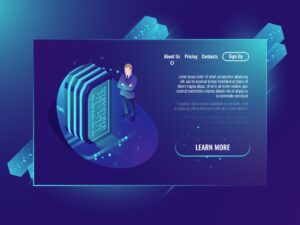Contents
Business sectors are incorporating data annotation services to enhance their business workflows. These services drive the widely used virtual assistants, which help automate digital equipment. Automobile manufacturers are incorporating these advanced services in the development of self-driven cars. The evolution of self-driven cars enhances the market value of the automotive industry, which is why it is expected to accumulate a $62.4 million share by 2030. The system behind the functioning of these self-driven cars relies on enhanced audio annotation services. Audio annotation solutions play an important role in stimulating the effectiveness of the automotive industry.
Applications of Audio Annotation Services in Automating Self-Driven Cars
Audio labeling services can be utilized to automate the functioning of various automobile activities. These commands assist the automated systems in making effective decisions in diverse scenarios. Audio annotation services are equipped with speech detection systems. This helps the automated modules to identify different sound events in real-time. Moreover, the NLP systems can effectively identify the sound of emergency vehicles, including ambulances, fire trucks, and police vans. By identifying these sounds, automated cars can change their lane by choosing the next best lane while providing a clear road for emergency vehicles to cross.
Audio data annotators train self-driven vehicles to monitor their health. This involves the identification of certain sounds, which are experienced in case of engine fault. These sounds alert the drivers to monitor the functioning of engines, which protects passengers from unusual events. The digital voice assistants are trained to solve the driver’s queries in real time. Through these services, the drivers can command the virtual assistants to answer their important calls, change music, and adjust the car’s temperature.
Enhance Passenger’s Experience With Audio Data Annotation
Audio annotation solutions stimulate the passenger’s in-car experience because they ensure a hands-free driving practice. This enables the drivers to shift all their focus on the road while all the other operations are managed digitally. The drivers can simply pin a location, and the NLP systems will enable the cars to provide exact navigation guidelines. This prevents the threat of being lost or experiencing a mishap during traveling.
The audio data annotation systems stimulate the effectiveness of all passengers, whether they are handicapped or not. People with certain disabilities can provide vocal commands to the speech assistants, which allows them to travel to distant areas independently. Automation in the automotive industry allows voice assistants to track the passenger’s activities. In case the driver falls asleep or forgets something important in the car, the NLP systems will alert the drivers regarding all these events. This protects the drivers from major disruptions and incidents.
Importance of Audio Data Annotation Role in the Automobile Industry
Audio annotation, also referred to as voice or speech labeling, is the process of assisting the natural learning processing models in understanding the context of audio recordings. These services are significant for the automation of the automotive industry. Audio labeling algorithms help the NLP systems to understand the driver’s commands and human speech in real-time. The audio data annotation facilities allow the automated speech recognition modules to transcribe human speech and convert it into a machine-understandable language.
Through these descriptive advancements, the self-driven vehicles can effectively identify the different audios and wavelengths. This enables the systems to detect unusual activities and protect the passengers from disruptions and explosions. Additionally, the automotive industry has developed new techniques that involve the inclusion of voice assistants to enhance the passenger’s driving experience. These assistants are guided through precise commands from trained audio annotators, allowing them to manage different in-car operations. Virtual assistants can automate various activities, including navigation tracking and in-car health monitoring.
Enhance the Productivity of Automobiles With Audio Transcription Guidance
Virtual assistants play a significant role in the automation of the self-driven cars. These services depend on the guidance of audio annotation services. Audio data annotation allows the voice-recognition virtual assistants to make informed decisions and provide passengers with streamlined instructions to enhance their traveling experience. The automated assistance protects the passengers from major accidents and mitigates the occurrence of unusual events. These services make self-driven vehicles user-friendly as they automate all the crucial operations that require extensive attention and guidance.
Wrapping It Up
Audio annotation services are significant for the effectiveness of the automotive industry. Through these services, the NLP systems are trained to examine various sounds in different scenarios. Audio data annotation solutions allow vehicles to automate all their operations and provide a hands-free driving experience to the drivers. These services identify different sound events and alert the drivers to make informed decisions in real-time. The automated self-driven cars recognize different speech and vocal scenarios, which allows them to make effective decisions that are helpful and most efficient for the passenger’s safety.








